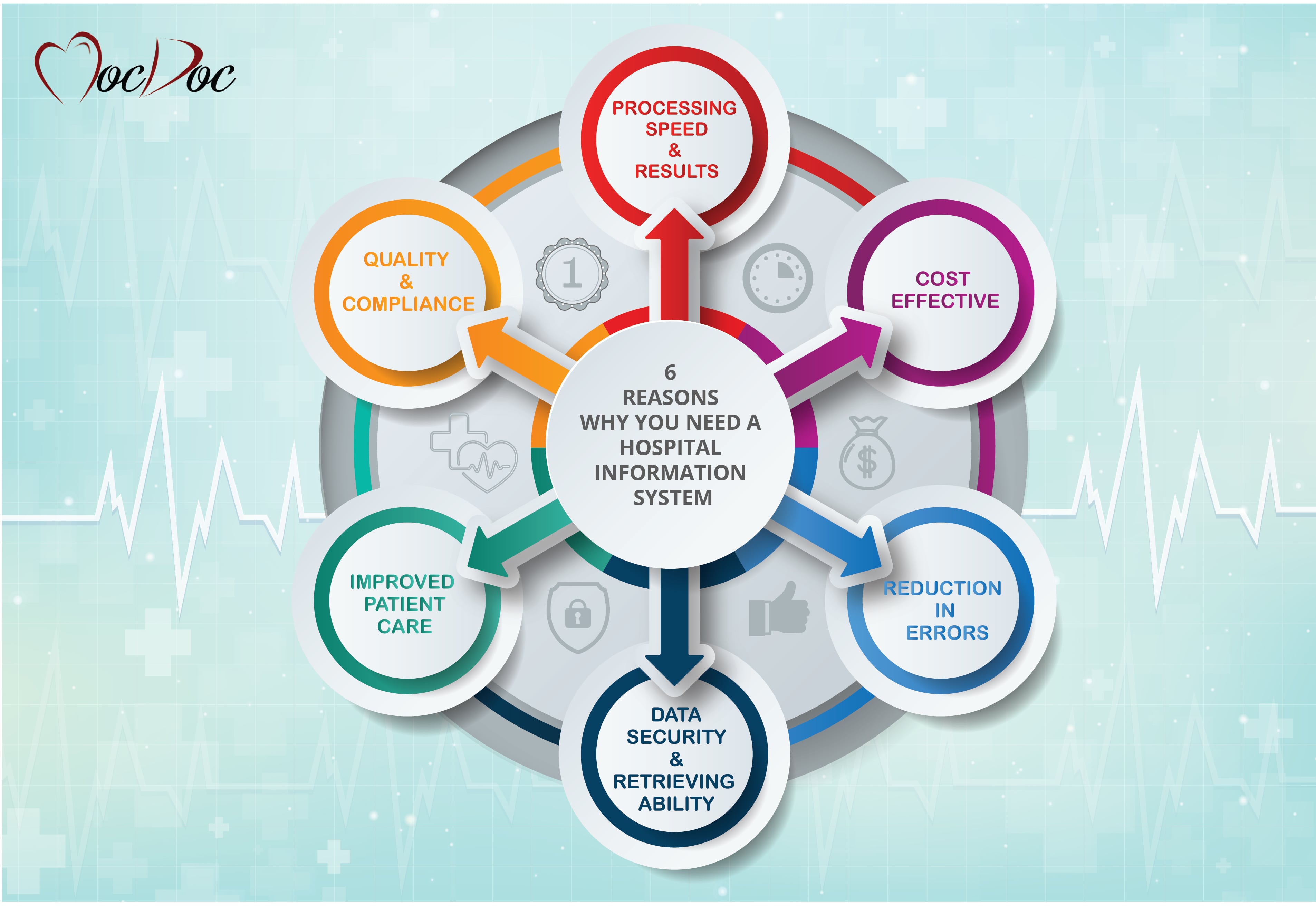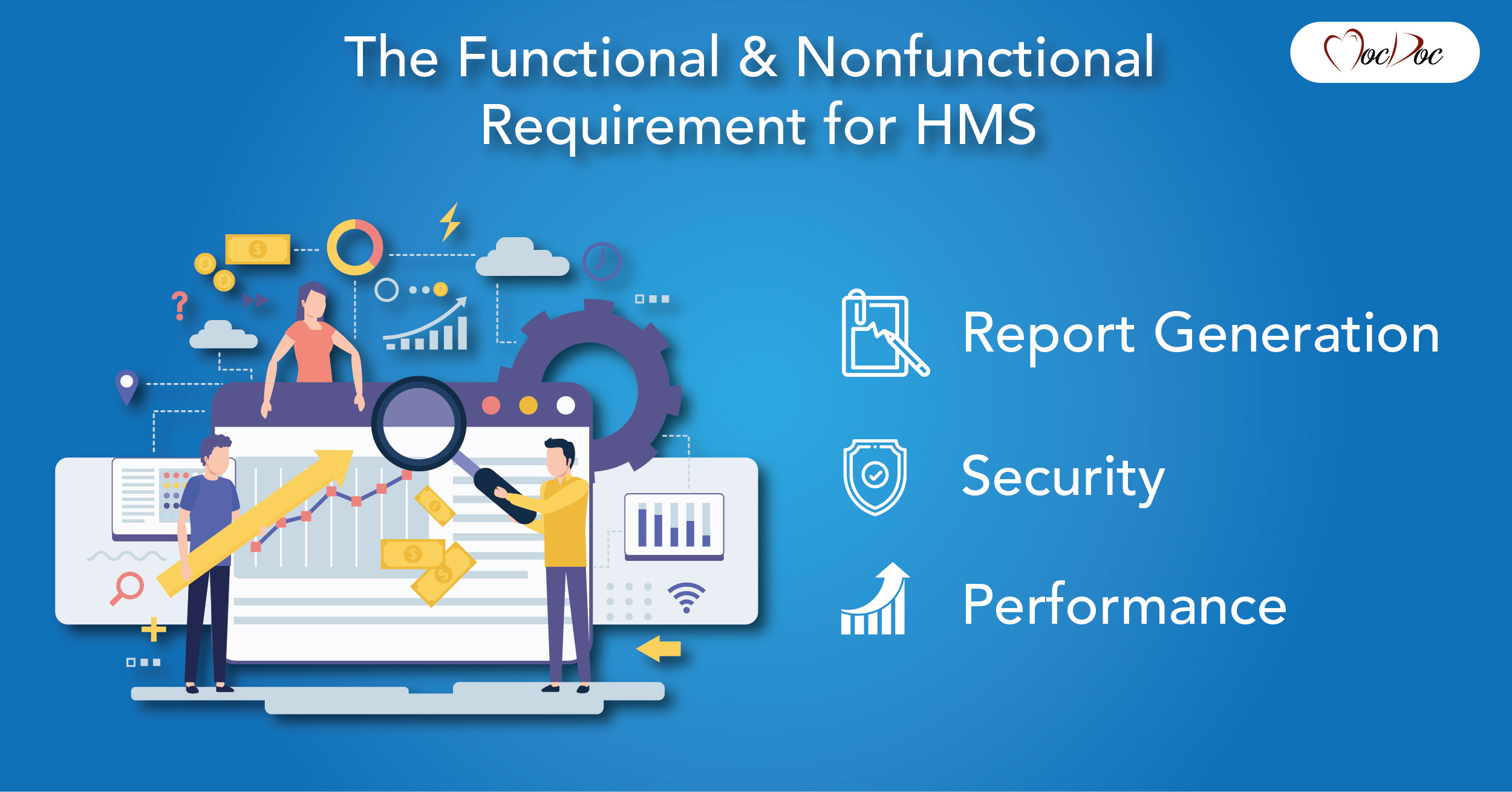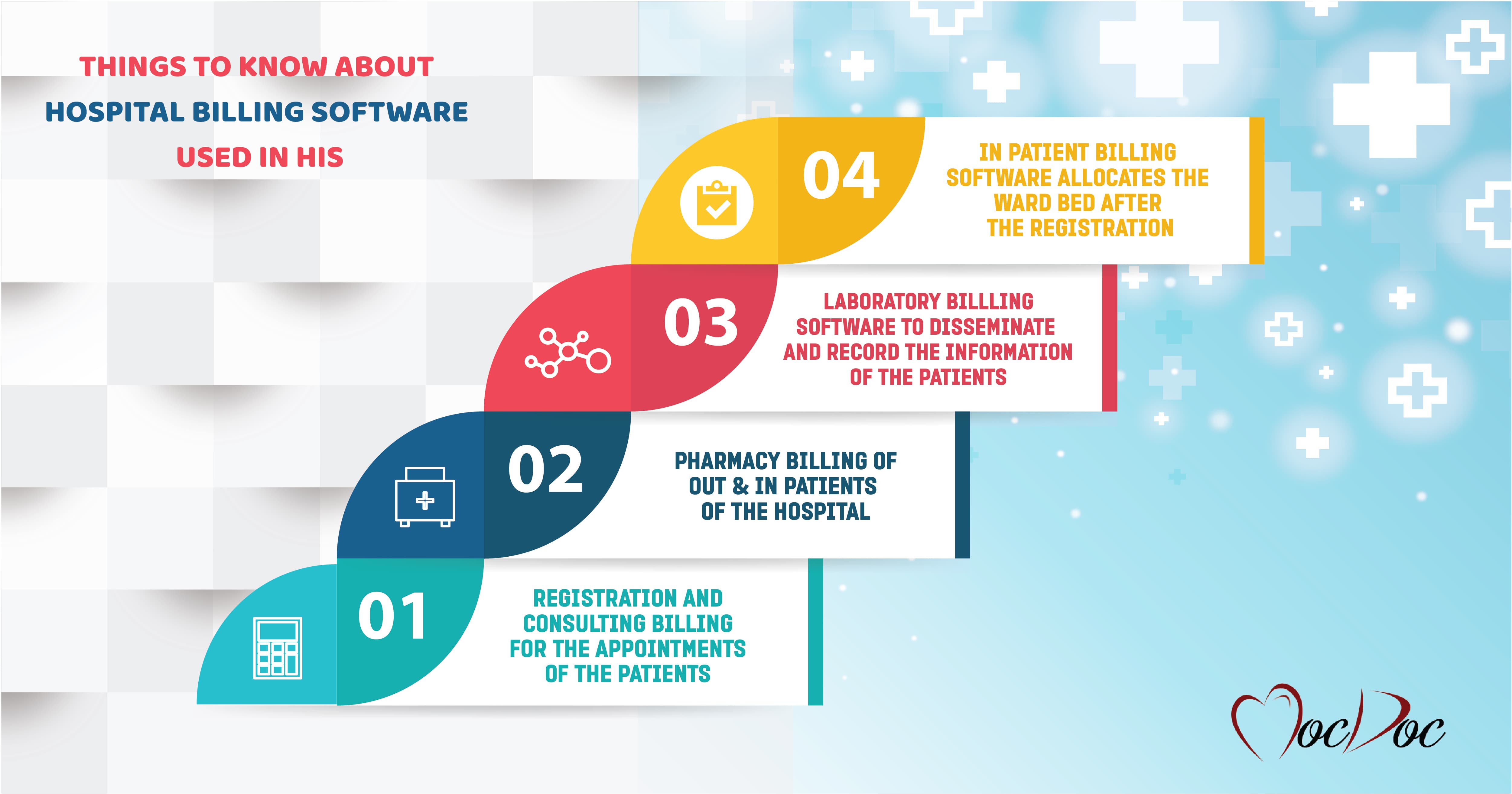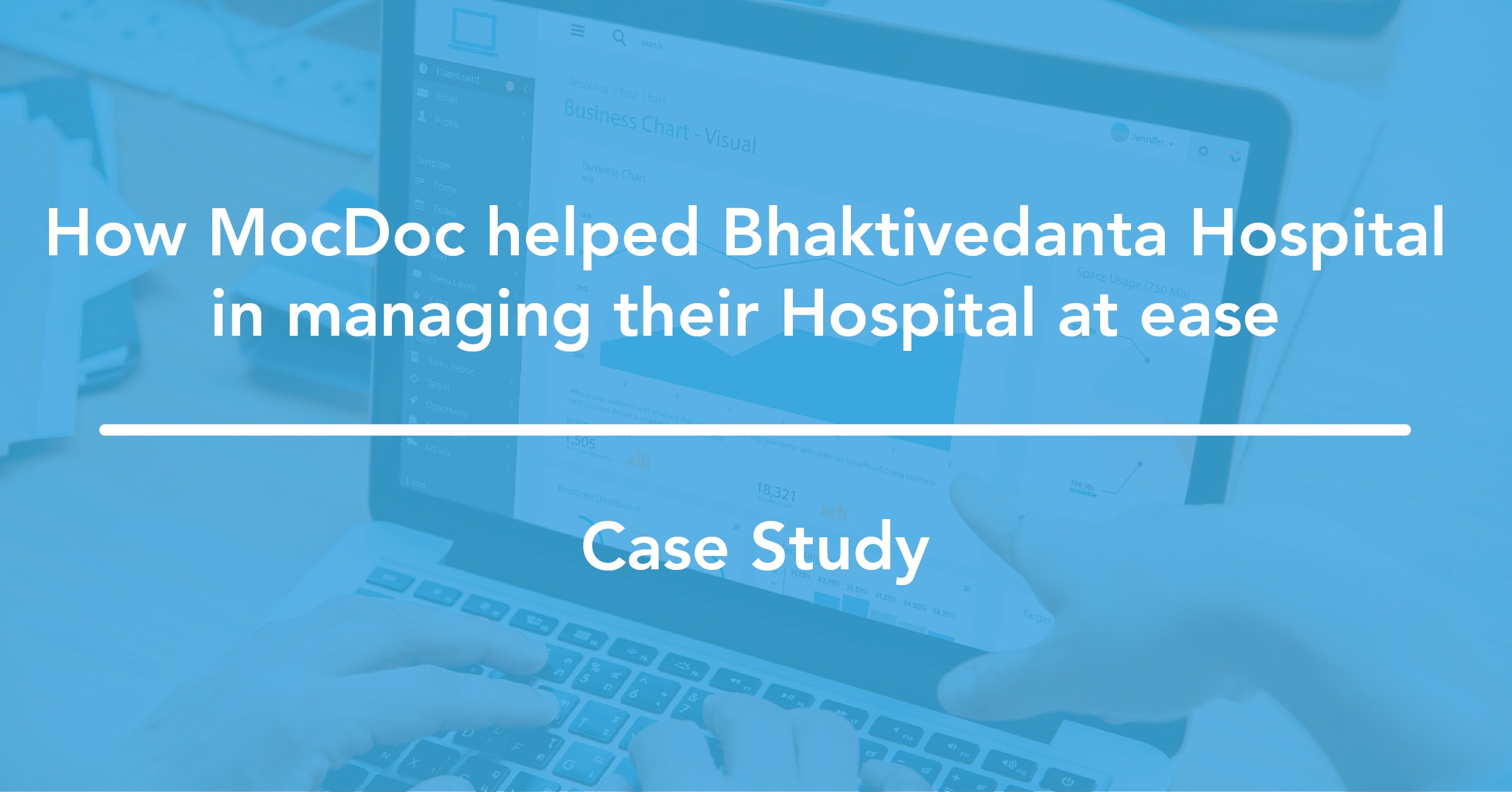MocDoc's Offerings
6 Reasons Why You Need a Hospital Management System
Published By
Sanjana
2018110815:36:51
Category HMS

Our present modern information system makes use of computers for the execution, each of them connected through an optimized network. Healthcare is the most critical aspect of our society, and many health care providers face challenges to offer practical and active services to patients.
Considering a multispeciality hospital, many people enter and exit the hospital in a day and maintaining their records safely is tedious. To reduce this type of burdens and to manage the financial, hospital administration and clinical aspects, Hospital management system came into existence.
Apart from that automating your hospital's processes and implementing them cannot be done too easily, you need an efficient hospital management system to take care of everything that is happening around the labs and hospitals.
If you are ready to implement or go with the hospital management system, make sure you follow these things before making it useful in your hospitals or labs.
Processing Speed & Results
Cost Effective
Reduction in Errors
Data Security & Retrieving Ability
Improved Patient Care
Quality & Compliance
Processing Speed & Results
Cost Effective
Reduction in Errors
Data Security & Retrieving Ability
Improved Patient Care
Quality & Compliance
Processing Speed and Results:
Hospital management system follows the standard operating procedures, and there are no chances for deviation to happen in any of the effective HMS systems. With the implementation of HMS in your labs or hospitals, you will be able to treat patients with a better way and accessing their real-time reports and other information regarding the patients, and their past clinical data and more can be done quickly and lead to best patient outcomes. Hospital management system makes employees work more accessible and improve the speed of the complete processes for better results.
Cost Effective:
HMS information system helps to track and control finances, reduce leakages as well as reduce manual work and therefore there is no requirement of the higher human workforce.
Hospital management system helps to cut down the manual work done by humans in the hospitals especially for the peoples who take care of the record and documentations safely. Hospital management system helps in reducing the human resources costs as most of the work is automated.
Cut down the cost related to storage and other associated requirements. If your hospital is entirely HMS implemented, then your hospital will go paper-free one, it's enough if you maintain the mandatory documents and other related ones in your hospital to comply with the regulation standards.
Reduction in Errors:
Hospital management system will help in reducing different types of errors that made through interventions like missing billing, operational failure, clinical errors, cost leakages, missing appointments and much more.
Every process on the hospital management system are automated, and there are plenty of tasks provided to the software to perform without the human intervention as well as accurately, this reduces the error significantly.
For example, An IPD patient final bill amount can be easily generated if your hospital enabled of Hospital management system as his reports and other samples bill are already billed and safe under the Patients unique Hospital ID, and therefore the billing executive needs to generate from the system and provide the statement to the patients.
If your hospital is not HMS enabled then you need to go with manual entries which involves too many human errors, so preferring HMS will make your billing section easier, faster, accurate and more transparent.
Data Security and Retrieving Ability:
In a Hospital management system, they are one of the cloud-based software where everything gets interlinked, and therefore there are no chances for breaches to occur as they have high data security.
Evidence-based medicine requires the retrieving ability as well as data ability mandatorily, and this easily achieved through a Hospital management system. If you have Hospital management system on your hospital, then you can easily access the operational, clinical and financial data of your hospitals.
Improved Patient Care:
Enhanced work efficiency and improved patient data access mean faster and better clinical decisions. A clinician orders the solution to implement once he gets the diagnostic report on his hand, so its necessary to have speedier support for receiving the reports rapidly. All departments in the hospitals are interconnected and integrated with this automation, and this enhances the patient care quality as well as the hospital turnovers.
Quality and Compliance:
Every hospital should send a report of birth, and death occurred, their reasons and related solutions to the NABH accreditation monthly. Its difficult to arrange them manually so preferring the best HMS helps you to send the reports faster and at the right time frame.
Every report is monitored and managed in the Hospital Management System carefully and efficiently for accurate results.
Everyone prefers HMS for their hospitals for coordinated and rapid care, reduced costs, reduced waiting time and readmission, enhanced patient safety, and clinical care.
Any other essential benefits of implementing a hospital management system in your clinics? Let us know through the comment section below.
To know more visit MocDoc - Healthcare
Related Articles
The Functional and Nonfunction...
Hospital Management System is used to take the dat..... Read more
Things to know about Hospital ...
Billing software is one of the essential software ..... Read more
How MocDoc helped Bhaktivedant...
IntroductionIn the city of Mumbai, Bhaktivedanta H..... Read more
Hospital Management System Dem...
When you decide to implement a hospital management..... Read more



